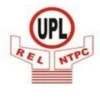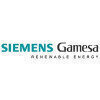Filter interviews by
Utility Powertech Interview Questions and Answers
26 Interview questions
Minimum tolerance refers to the smallest allowable deviation from a specified dimension in manufacturing.
Tolerance is crucial in ensuring parts fit together correctly.
For example, if a shaft is specified to be 10mm, a minimum tolerance might allow it to be 9.95mm.
Minimum tolerance can affect functionality; too tight a tolerance may lead to assembly issues.
In precision engineering, tolerances can be as tight as ±0....
Different types of cable trays include ladder, perforated, solid bottom, wire mesh, and trough.
Ladder cable trays have horizontal cross members resembling a ladder.
Perforated cable trays have small holes for ventilation and drainage.
Solid bottom cable trays have a solid base for supporting cables.
Wire mesh cable trays have a grid-like structure for easy cable installation.
Trough cable trays have a U-shaped design ...
Anticarsia gemmatalis, also known as the velvetbean caterpillar, is a common pest in agriculture.
Anticarsia gemmatalis is a species of moth in the family Erebidae.
It is a major pest of soybean crops, feeding on the leaves and causing significant damage.
Control measures for velvetbean caterpillars include biological control agents, insecticides, and crop rotation.
Monitoring for early signs of infestation can help p...
General Arrangement drawings show the overall layout of electrical systems in a building or structure.
GA drawings provide an overview of the entire electrical system layout
They include details such as equipment locations, cable routing, and connection points
These drawings are essential for understanding the overall design and installation of electrical systems
Examples of GA drawings include floor plans with electr...
Types of valves include gate valves, globe valves, ball valves, butterfly valves, and check valves.
Gate valves
Globe valves
Ball valves
Butterfly valves
Check valves
PG test stands for Pressure Gauge test.
PG test is a method used to measure and verify the pressure of a system or component.
It involves using a pressure gauge to measure the pressure and compare it to the desired or specified value.
PG tests are commonly performed in industries such as manufacturing, oil and gas, and HVAC.
The results of the PG test help ensure that the system or component is operating within the re...
FGD projects refer to Flue Gas Desulfurization projects, which are aimed at reducing sulfur dioxide emissions from power plants and industrial processes.
FGD projects involve the installation of equipment and systems to remove sulfur dioxide from flue gas emissions.
The main objective of FGD projects is to reduce air pollution and comply with environmental regulations.
Various technologies are used in FGD projects, i...
Preparing an estimate involves assessing project requirements, costs, and resources needed for successful completion.
Define project scope: Clearly outline what the project entails, including tasks and deliverables.
Gather data: Collect historical data and benchmarks for similar projects to inform your estimates.
Break down tasks: Divide the project into smaller tasks or phases for more accurate estimation.
Estimate c...
A potential transformer is a type of instrument transformer used to measure voltage in high voltage systems.
It is also known as a voltage transformer.
It steps down the voltage to a lower level suitable for measurement or protection.
Potential transformers are commonly used in power systems for metering, relaying, and control purposes.
They provide accurate voltage measurements and isolate the measuring instruments f...
The number of windings used in an auto transformer can vary depending on the specific application.
Auto transformers can have a single winding or multiple windings.
In a single winding auto transformer, the primary and secondary windings are connected together.
In a multiple winding auto transformer, there are separate primary and secondary windings.
The number of windings determines the voltage transformation ratio o...
Utility Powertech Interview Experiences
29 interviews found
I applied via Company Website and was interviewed in Jul 2024. There were 2 interview rounds.
(2 Questions)
- Q1. Oil and gas plant review, and plant operation sefty and maintenance. Related question
- Q2. Ethanol blading process , ms hsd blanding process etc
(2 Questions)
- Q1. Plant review opration safety related
- Q2. Safety related question
Interview Preparation Tips
I appeared for an interview in Mar 2025, where I was asked the following questions.
- Q1. Velocity related question fond
- Q2. Find minimum tollrance
- Ans.
Minimum tolerance refers to the smallest allowable deviation from a specified dimension in manufacturing.
Tolerance is crucial in ensuring parts fit together correctly.
For example, if a shaft is specified to be 10mm, a minimum tolerance might allow it to be 9.95mm.
Minimum tolerance can affect functionality; too tight a tolerance may lead to assembly issues.
In precision engineering, tolerances can be as tight as ±0.001mm...
Interview Preparation Tips
(5 Questions)
- Q1. Colour code of structural in NTPC
- Ans.
The colour code of structural in NTPC is used to identify different types of structures and their purposes.
The colour code is used for safety and identification purposes.
Different colours are assigned to different types of structures.
For example, red may be used for fire protection systems, yellow for electrical systems, and green for safety equipment.
The colour code helps in quickly identifying the purpose of a struct...
- Q2. About Lifting plan
- Q3. What is FGD projects
- Ans.
FGD projects refer to Flue Gas Desulfurization projects, which are aimed at reducing sulfur dioxide emissions from power plants and industrial processes.
FGD projects involve the installation of equipment and systems to remove sulfur dioxide from flue gas emissions.
The main objective of FGD projects is to reduce air pollution and comply with environmental regulations.
Various technologies are used in FGD projects, includ...
- Q4. What is PG test
- Ans.
PG test stands for Pressure Gauge test.
PG test is a method used to measure and verify the pressure of a system or component.
It involves using a pressure gauge to measure the pressure and compare it to the desired or specified value.
PG tests are commonly performed in industries such as manufacturing, oil and gas, and HVAC.
The results of the PG test help ensure that the system or component is operating within the require...
- Q5. About Agitator rating
I applied via Walk-in and was interviewed in Nov 2023. There were 3 interview rounds.

(5 Questions)
- Q1. FULL FORM OF MCB
- Ans.
MCB stands for Miniature Circuit Breaker.
MCB is an electrical switch that automatically protects an electrical circuit from damage caused by overload or short circuit.
It is a type of circuit breaker that is commonly used in residential and commercial buildings.
MCBs are designed to trip and disconnect the circuit when excessive current flows through it, preventing damage to the electrical equipment and wiring.
They are c...
- Q2. What is a potential transformer?
- Ans.
A potential transformer is a type of instrument transformer used to measure voltage in high voltage systems.
It is also known as a voltage transformer.
It steps down the voltage to a lower level suitable for measurement or protection.
Potential transformers are commonly used in power systems for metering, relaying, and control purposes.
They provide accurate voltage measurements and isolate the measuring instruments from h...
- Q3. How many windings are used in auto transformer?
- Ans.
The number of windings used in an auto transformer can vary depending on the specific application.
Auto transformers can have a single winding or multiple windings.
In a single winding auto transformer, the primary and secondary windings are connected together.
In a multiple winding auto transformer, there are separate primary and secondary windings.
The number of windings determines the voltage transformation ratio of the...
- Q4. Full form of SWG ?
- Ans.
SWG stands for Standard Wire Gauge.
SWG is a standardized system for measuring the diameter of wire.
It is commonly used in electrical and electronic industries.
SWG is also known as British Standard Wire Gauge (BSWG).
- Q5. By what is the speed of turbine controlled?
- Ans.
The speed of a turbine is controlled by adjusting the flow of steam or water.
The speed of a turbine can be controlled by adjusting the flow rate of the working fluid, such as steam or water.
By increasing or decreasing the flow rate, the turbine's speed can be increased or decreased accordingly.
This control mechanism allows for efficient operation and optimization of power generation systems.
For example, in a steam turb...
ABC=123 EFG=567 STU=?
Interview Preparation Tips
- Electricals
- Power Transformers
- Distribution
- Motors
- general
(2 Questions)
- Q1. Prodiuction og electicityt
- Q2. Work experience
I applied via Company Website and was interviewed in Mar 2024. There was 1 interview round.
(1 Question)
- Q1. Technical and legal related to Safety
I applied via Approached by Company and was interviewed in Sep 2023. There were 2 interview rounds.

(2 Questions)
- Q1. What is your name
- Ans.
My name is John Smith.
My name is John Smith.
I go by the name John.
My full name is John Smith.
- Q2. Chintu kumar singh pratap ahmad
Interview Preparation Tips
(1 Question)
- Q1. Name the types of valve?
- Ans.
Types of valves include gate valves, globe valves, ball valves, butterfly valves, and check valves.
Gate valves
Globe valves
Ball valves
Butterfly valves
Check valves
I applied via Company Website and was interviewed in Nov 2023. There were 2 interview rounds.

(1 Question)
- Q1. About how to prepare estimate
- Ans.
Preparing an estimate involves assessing project requirements, costs, and resources needed for successful completion.
Define project scope: Clearly outline what the project entails, including tasks and deliverables.
Gather data: Collect historical data and benchmarks for similar projects to inform your estimates.
Break down tasks: Divide the project into smaller tasks or phases for more accurate estimation.
Estimate costs:...
I applied via Walk-in and was interviewed in Sep 2023. There were 2 interview rounds.

(3 Questions)
- Q1. Roll crusher maintenance
- Q2. Preventive maintenance
- Q3. A/F maintenance
Interview Preparation Tips
Top trending discussions






Utility Powertech Interview FAQs
The duration of Utility Powertech interview process can vary, but typically it takes about less than 2 weeks to complete.
Tell us how to improve this page.
Utility Powertech Interviews By Designations
- Utility Powertech Mechanical Engineer Interview Questions
- Utility Powertech Site Engineer Interview Questions
- Utility Powertech Assistant Engineer Interview Questions
- Utility Powertech Engineer Interview Questions
- Utility Powertech Technical Support Executive Interview Questions
- Utility Powertech Graduate Apprentice Trainee Interview Questions
- Utility Powertech Quality Engineer Interview Questions
- Utility Powertech Engineering Manager Interview Questions
- Show more
Interview Questions for Popular Designations
- Senior Executive Interview Questions
- Team Lead Interview Questions
- Software Developer Interview Questions
- Business Analyst Interview Questions
- Senior Associate Interview Questions
- Graduate Engineer Trainee (Get) Interview Questions
- Associate Software Engineer Interview Questions
- Accountant Interview Questions
- Show more
Overall Interview Experience Rating
based on 35 interview experiences
Difficulty level
Duration
Interview Questions from Similar Companies
Utility Powertech Reviews and Ratings
based on 516 reviews
Rating in categories
|
Engineer
76
salaries
| ₹3.1 L/yr - ₹7 L/yr |
|
Safety Officer
63
salaries
| ₹2.5 L/yr - ₹7 L/yr |
|
Electrical Engineer
40
salaries
| ₹2.8 L/yr - ₹6.5 L/yr |
|
Senior Engineer
37
salaries
| ₹4 L/yr - ₹7.1 L/yr |
|
Safety Supervisor
37
salaries
| ₹2.5 L/yr - ₹4.5 L/yr |

Adani Power

Adani Green Energy

ReNew

Vestas
- Home >
- Interviews >
- Utility Powertech Interview Questions













